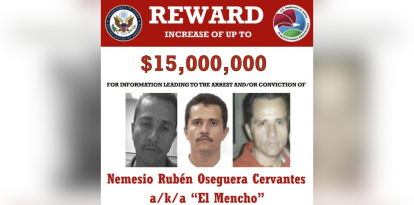The 6 key points of the Constitution that Chileans will vote on this Sunday
The proposal states that Chile is "plurinational, intercultural, regional and ecological". In turn, it gives indigenous peoples the right to self-government.

Cordon Press
This Sunday, September 4, Chile will hold the last vote of the constitutional reform process that began after the social outburst of 2019. After the drafting of its new laws has been approved and the Constitutional Convention - the group appointed to write them - has been chosen, the country will finally decide whether to approve or reject the text.
The drafting of the new Magna Carta began on July 4, 2021 under the government of Sebastián Piñera. If approved, it would entail major changes and the creation of new bodies, such as a National Water Agency or a Chamber of Regions, which would replace the Senate. If the draft is rejected, the current Constitution will remain in force.
Key points
Some points of the new text have generated large divisions amongst the population. The study and research center Libertad y desarrollo raises "6 critical points of the constitutional principles in the proposal":
Latest surveys
With 38%,"Hope" and "uncertainty " are the most representative emotions of the population before the plebiscite on the new Constitution. This, according to the latest Ipsos survey, conducted in conjunction with the think tank Espacio Público.
Both the latest Cadem and Criteria Research surveys indicate that the rejectionist party would take the majority of preferences with an advantage of around 10 percentage points. Both suggest that this gap has been narrowing considerably since a month ago, when the options were separated by almost 20 points.
The government has arranged for free copies of the Magna Carta to be handed out, and even the same president Gabriel Boric, who was its promoter, has read passages of the proposal and has referred to both the text and the plebiscite in several of his media appearances: "Both options on September 4 are legitimate, but let the decision they make be based on what the text says and not on lies that are circulating." said the president.
Axel Kaiser, the main critic of the new Constitution, summarized what it would mean to approve the text:
























